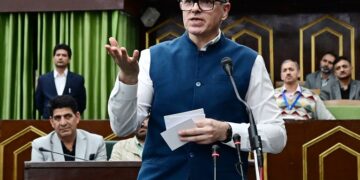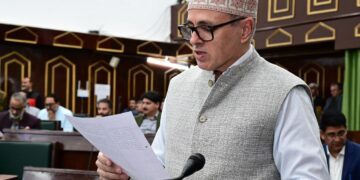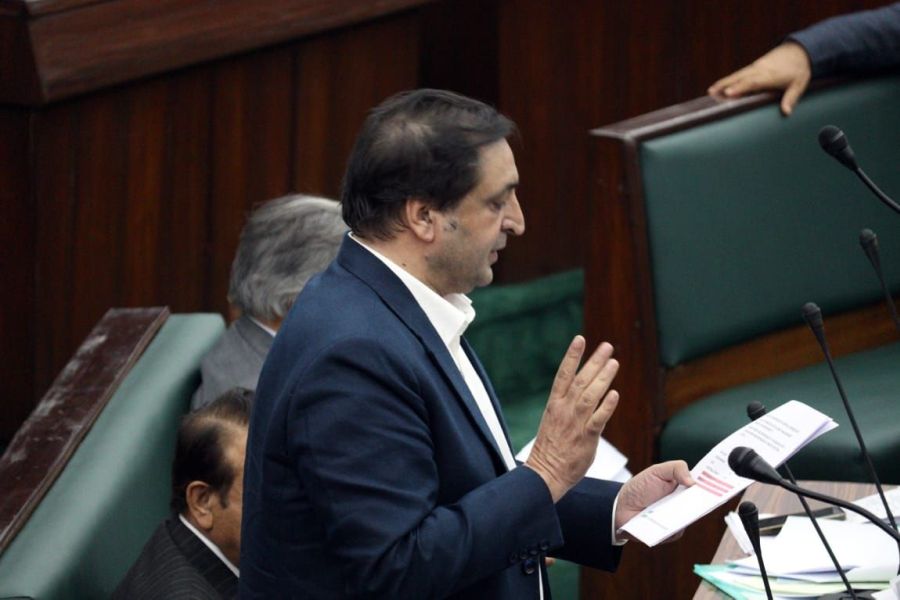Srinagar: The J&K government has defended the controversial Reservation Policy in the High Court that gives ‘lions share’ to certain sections of the society leaving little for the open merit candidates.
The ploy of the government in this regard is that it was the duty of the State “to give equal opportunities to all the sections of the social order and take the downtrodden out of their disadvantageous and unfavourable position”.
The government filed its objections to the petitions filed in the High Court of J&K and Ladakh wherein the petitioners contend that due to the amendments in the Reservation Rules of 2005 by Lieutenant Governor-led administration, there is a phenomenal decrease in the percentage in government jobs and seats in educational institutions for the open merit candidates — from 57 percent to just 33 percent.
The petitioners had contended that in the post-2019 scenario, the amendments effected in the Reservation Policy granted major share to different “bad pocket categories” and virtually left crumbs for the majority, the general category population candidates in the admissions in professional courses and appointments in the government service.
While calling the pleas that challenged the post-2019 amendments as an attempt to “abuse the judicial process motivated by ill-will, ulterior and oblique motives”, the J&K government’s Social Welfare Department in the affidavit filed on Friday stressed an “equitable distribution of the resources so as to ensure prevailing of justice in its true sense, as destined upon, in the Constitution.”
The affidavit read “it is important to note that no particular section of the society has indefeasible, inalienable and absolute right to reservation in perpetuity. “It is the government which has to maintain equilibrium in the society and has to see that all such sections of the society that need special measures for their advancement and progress are provided so and also the duration to continue the same, thus empowering and enabling them to contribute in nation building.”
Accordingly, as per the constitutional mandate, the affidavit claimed that the “Government is entitled to include or exclude any particular section to be dealt with under the provision of the reservation and to make the country a ‘socialist’ one in its true spirit.”
The government said that the plea challenging the reservation policy was “enthused” with an ambition of intervention in the “separation of powers” so much so that the petitioners want to control the legislative powers of the government by misusing the power of “judicial review”.
Referring to judgment by the Supreme Court on the subject— Indra Sawhney— the government said that it has been held that whether a backward class is inadequately represented or not is purely a matter of subjective satisfaction of the State.
“It has been held that not only should a class be a backward class for meriting reservations, it should also be inadequately represented in the services under the State,” the government said.
“The language of clause (4) makes it clear that the question whether a backward class of citizens is not adequately represented in the services under the State is a matter within the subjective satisfaction of the State. This is evident from the fact that the said requirement is preceded by the words ‘in the opinion of the State’,” it continued.
This opinion can be formed by the State on its own, i.e., on the basis of the material it has in its possession already or it may gather such material through a Commission/Committee, person or authority, it said. “All that is required is, there must be some material upon which the opinion is formed.”
The government also underscored that the writ petitioners before the court have not challenged the reservations up to 50 percent and have only challenged the enhancement of reservation.
“As per Article 16(4), the State may make reservations for backward classes only if they are inadequately represented,” it said, adding, “by not challenging the reservation granted to these communities within the upper limit of 50 percent, the petitioner affirmed that these classes are inadequately represented.”
The government said, subject to the fulfilment of the social test for the breach of the 50 percent ceiling, it is for the State to decide the requisite reservation to cure the inadequate representation of these classes.
“Test for breaching the 50 percent ceiling is not a ‘geographical test’ but a ‘social test’,” it said, adding, “the petitioners have failed to appreciate that the 50 percent ceiling is not an inviolable rule and may be breached in exceptional circumstances as held in …Indra Sawhney (judgment).”
The petitioners, the government said, have failed to appreciate that the impugned rules envisage “adequate representation” and not “proportionate representation”.








